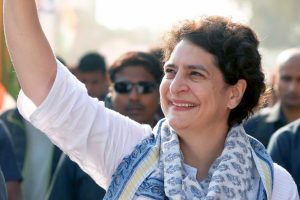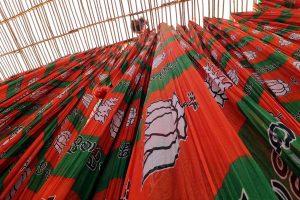External Affairs Minister S Jaishankar Saturday observed that the world is ‘messy’ today for a variety of reasons, the notable one being that it is witnessing a period of great change.
He was addressing a Global Town Hall event with “Keeping Course: Actions and Solutions for a Messy World” as its theme.
”…even as the world looks complicated, India’s desire and determination to ensure its stability and contribute to its prosperity is only stronger,” he said.
Mr Jaishankar noted that the developments being witnessed today are difficult, unpredictable and perhaps even chaotic.
”After all, any transformation is a process with outcomes and the players involved often do not have prior understandings in that regard about either. In truth, the instincts and interests that drive change are mostly competitive. Therefore, by its very nature, we cannot usually forecast accurately where a world in serious flux ends up,” he added.
He said it is the task of those in foreign policy to assess trends, read the landscape and fashion strategy for their particular national interest.
The minister referred to some of the key directions and developments in international relations. Over the last few decades, he said the world has witnessed the unfolding of globalisation that has driven a rebalancing in the world order.
That has matured to a point where there is talk of a genuine multi-polarity emerging in the near future. This is a far cry from anything that the world has experienced since 1945. It is not just that there will be more players of consequence; it is also that their relative weight has undergone a big shift.
”Furthermore, the approach of nations to global issues is also no longer the same. Many big powers are now content to do less and the newer ones more reticent about stepping forward. In many situations, it is left to the regionally significant players to sort out their own particular mess.
“Beyond this, we are also looking at a more sharpened contestation between the US and China on a range of areas. If we also take into account that technology advances like AI, electric mobility, space or drone can shape balances of power more strongly, then the global calculus looks even more daunting,” he added.
Regarding what a country like India can do in response to such a situation, he said the country build up its own national capacities so that there are more options and contributions that benefit the world.
”We have seen this recently during the Covid pandemic in terms of vaccine production capacity. Or in the Arabian Sea to strengthen maritime security. As indeed, the supply of food grains to those in great need. Second, to de-risk the global economy from pandemics, climate events and conflicts, help build more resilient, reliable and redundant supply chains. This means working with global partners more efficiently and create an environment where it is easier to do business. Many of the recent infrastructure initiatives in India will make a difference in that regard.”
Thirdly, he said that in the digital domain, India can create trusted partnerships and trusted vendors.
”This will ensure that the sensitivities at home that we have about our data are equally respected when they cross the borders. Fourth, those who have relevant achievements and experiences in the Global South must share with others. India’s digital public infrastructure is a case to point. And fifth, while we must constantly build new mechanisms and press for reformed multilateralism, be willing to work with like-minded partners on specific agenda. The Quad is such an example,” he added.












